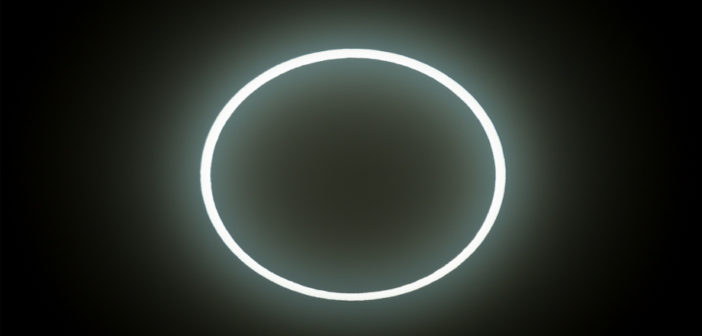The totality of the Nigeria’s geographical space will experience an annular solar eclipse on September 1, 2016 between 7:14 am and 10:03 am according to the National Space Research and Development Agency (NASRDA).
In a statement released yesterday by the Head, Media and Corporate Communications of NASRDA, Felix Ale, the highest degree of obscurity in Nigeria during the annular eclipse would be in the Southern part of Nigeria, particularly in Lagos, where it was expected to have 80 per cent obscurity, while the lowest degree of obscurity would be about 45 per cent and this would be observed in the Northern part of the country, particularly in Sokoto. in Abuja, the annular eclipse will be observed at about 60%.
The eclipse is expected to occur between 7.15 a.m. and 10.03 a.m, with slight variations in actual timing across the country. In Lagos, the first contact will occur at about 7.15 a.m, while the maximum eclipse will occur around 8.30 a.m. and will end by 10.03 a.m.
The eclipse to be experienced two weeks from now is an annular solar eclipse which happens when the Moon covers the Sun’s center, leaving the Sun’s visible outer edges to form a “ring of fire” or annulus around the Moon. An annular solar eclipse occurs when the Moon appears smaller than the Sun as it passes centrally across the solar disk and a bright ring, or annulus, of sunlight remains visible during the eclipse.
What this translates into is that the Sun looks like the Moon has taken a bite out of it. This is because the Moon casts the lighter, outer part of its shadow, the penumbra, on Earth.
The National Aeronautics and Space Administration (NASA) projects the occurrence to happen between 7.14 am and 9.52 am.




